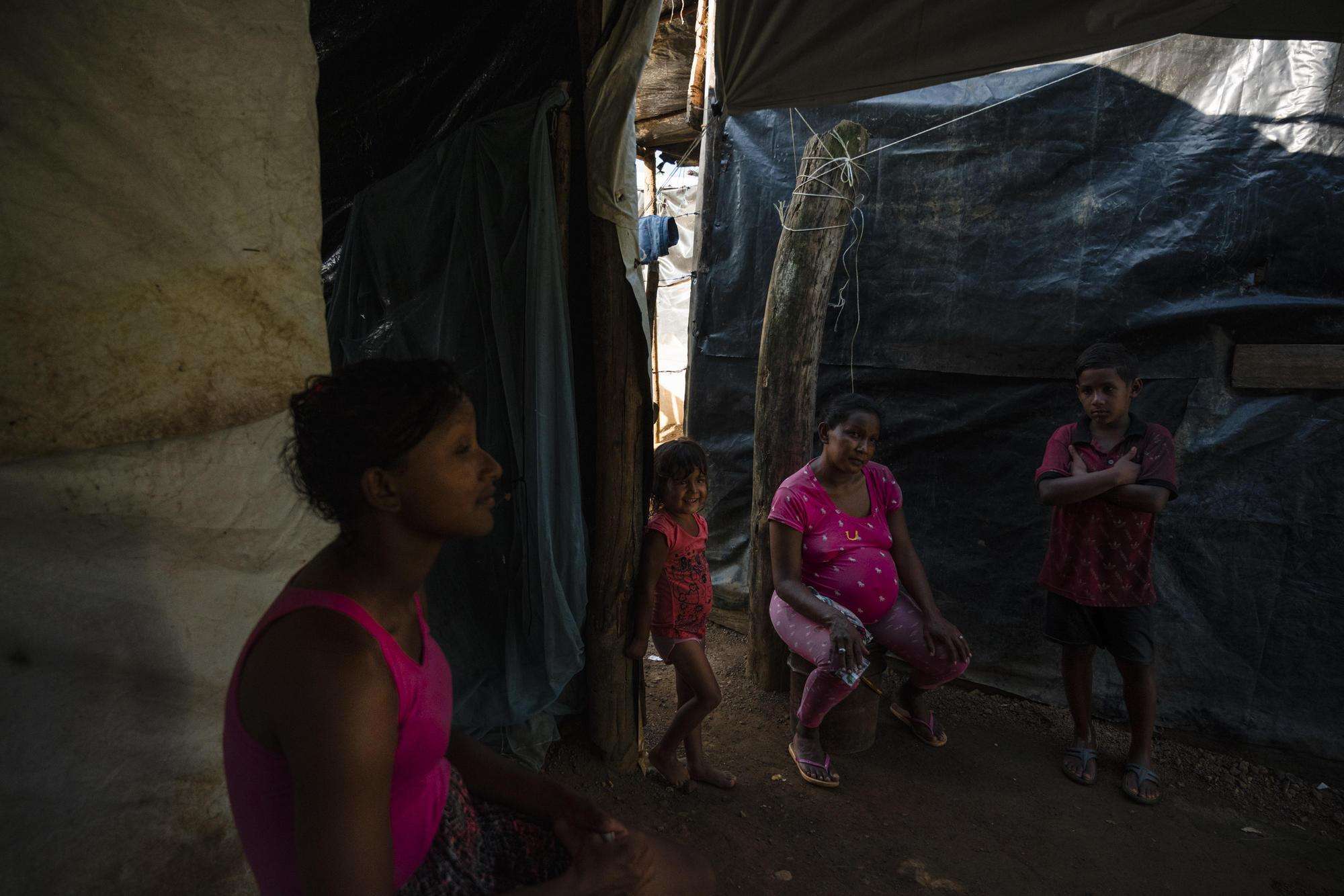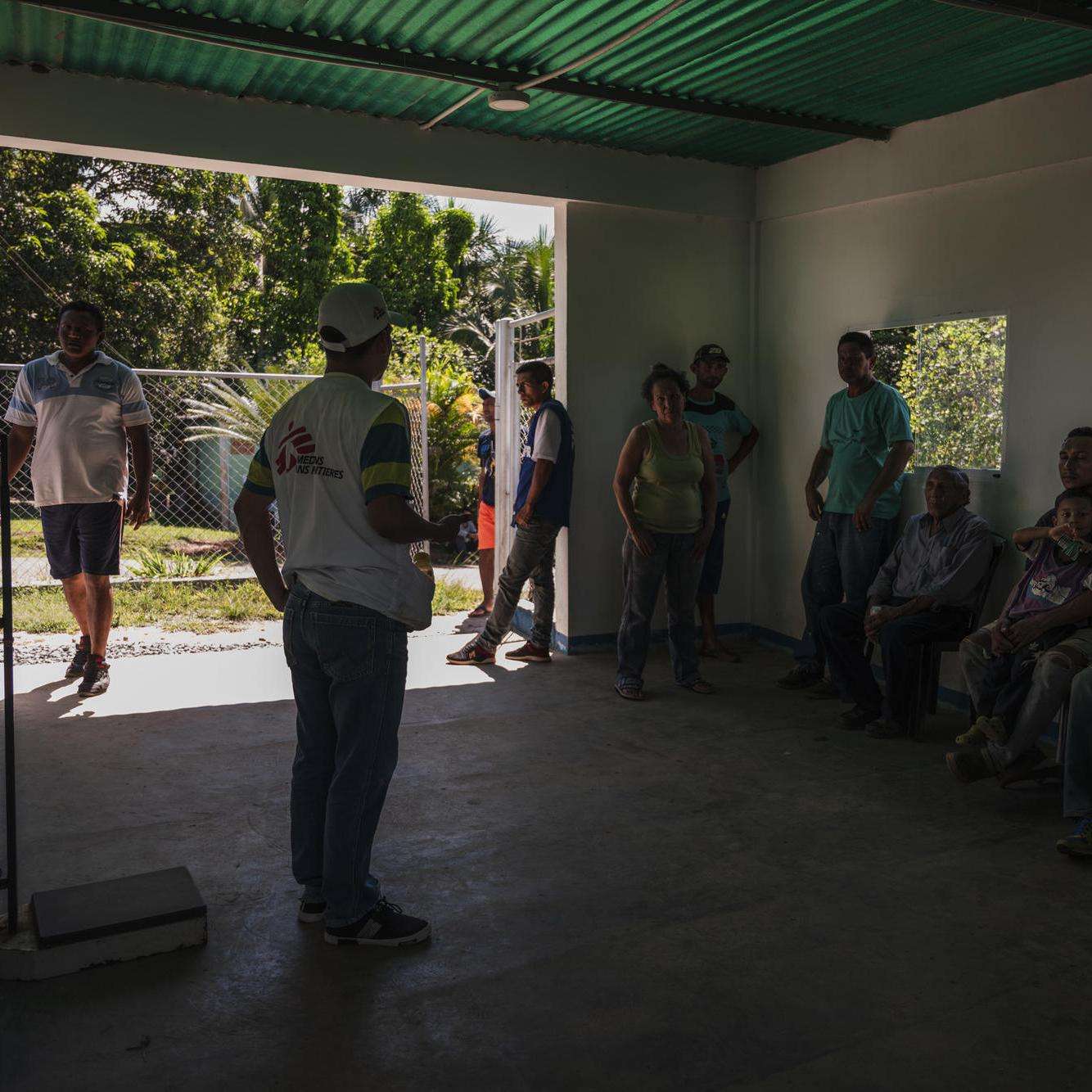Fifty years ago, Venezuela was seen as a leader in the fight against malaria in South America. But in recent years, the parasitic disease has made a comeback. In 2019, Venezuela had one of the highest rates of malaria infection in Latin America, with more than 320,000 diagnosed cases, according to the Pan American Health Organization. But the country’s collapsing health system is ill-equipped to tackle the resurgence.
Rates of malaria are particularly high in the town of Las Claritas, in Venezuela’s Bolívar state, where many people have arrived seeking work in illegal gold mines nearby—one of very few remaining economic opportunities in the region. MSF works in collaboration with the Venezuelan Ministry of Health to fight malaria and educate people about how to protect themselves from the parasitic disease. Here, people in the region describe their experiences with malaria in their own words.
If getting sick is your way to continue to live, then it is worth it.
Yordan Pentoja, 27, Las Claritas
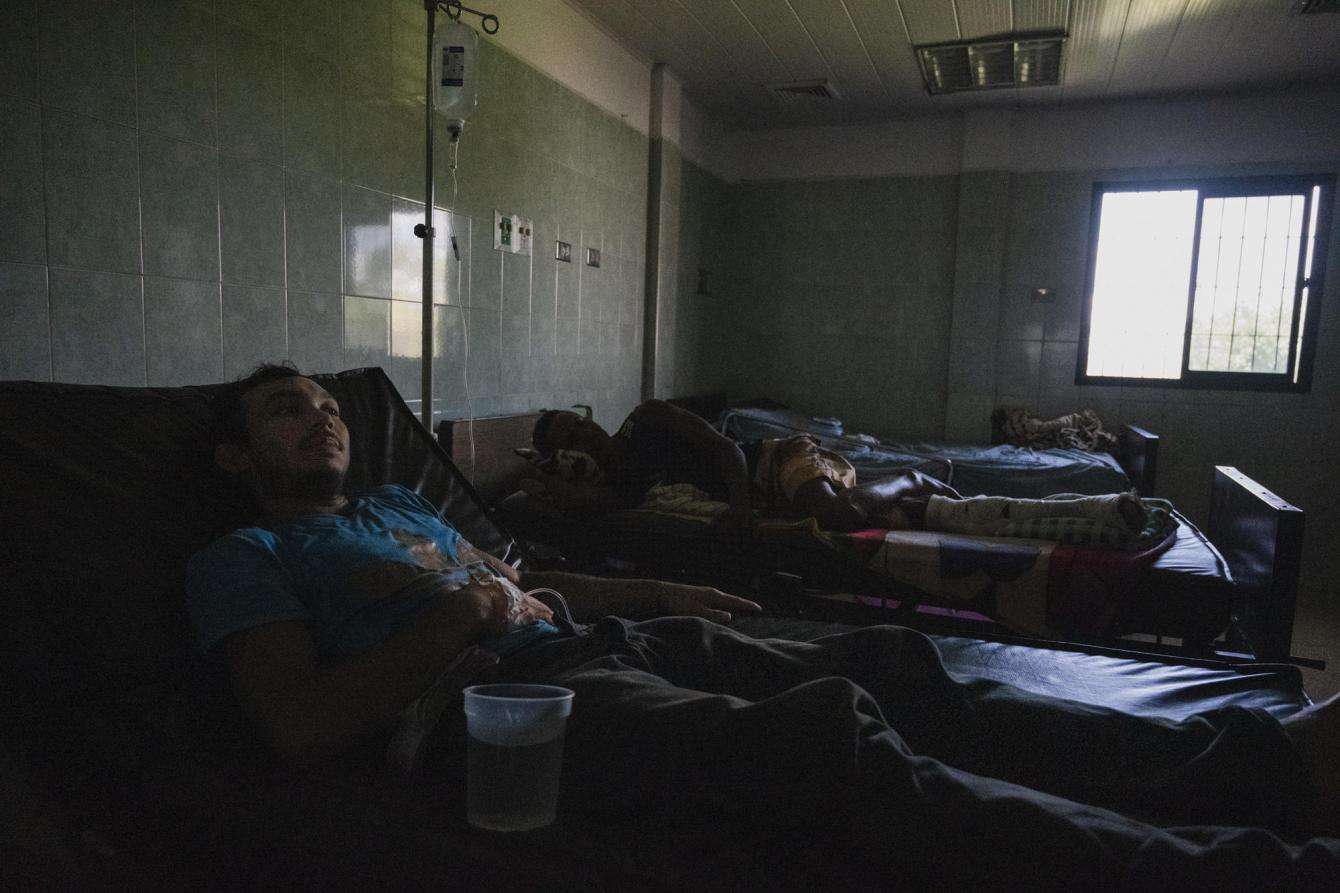
My name is Yordan Pentoja. I am 27 years old. I’ve been working at the mine for a few years. I came to the clinic today because malaria hit me again. This time around, it’s really bad. The closest malaria diagnostic point to the mine that I work in is four hours away, so I didn’t get to do the test and I came directly here for treatment. I knew I had malaria from the moment I started to feel sick.
It is the first time I’ve come to this clinic to be treated. Earlier today, my head and my stomach were hurting a lot and the heat was really killing me so much that I passed out. When I woke up, my colleagues decided to take me to the clinic. It took me about three hours and two different motorcycles to get here. The doctors treated me well and the treatment is for free, which helps because I could not pay for it. It’s the eighth or ninth time since the beginning of the year that I’ve had malaria, last time I got it was three months ago.
The very first time I got it the disease was “hidden” in my body. I went and did the test five times, but nothing showed up. People kept on telling me I did not have malaria.
I was feeling so bad that I went to a private laboratory at some point to figure out what I had. The doctors there told me I probably had dengue. They told me I should drink condensed milk and eat sardines, among other things, to cure the disease.
When I did what they had told me, my situation got worse. I then decided to go one last time with my brother to take the malaria test and that’s when it came back positive. By then, I had spent about two weeks suffering and had lost about 10 kilos [about 22 pounds]. I was so skinny; this was my worst experience of malaria. But this time around, it is bad too.
I think I had malaria that many times because it is like a plague in this region of the country. Many of my colleagues at the mine have had it too. So many had it that I stopped counting.
Every day, we take our shovels and we go work in the mine; our life is just about work. And when we don’t work, we sleep. My colleagues and I live inside the mine, we rest in hammocks as we come from all over the country and we don’t own houses here.
When I first started working at the mine, I bought a mosquito net to protect myself from malaria. I had heard it was a risk in this area. But except if you go to sleep early, when you stay out at night playing cards with the others, the mosquitoes bite you. And you eventually get sick.
But despite this, if God allows it, I will continue working here. Life at the mine is hard but I have no regrets because it’s the only way to survive. I need to make ends meet and I could never leave my country. If getting sick is your way to continue to live, then it is worth it.
I don’t know how long I’ll stay inside the mine. One always knows when he comes but never when he leaves. I haven’t seen my family in over a year because they are far away, but I also do what I do for them. Inside the mine, I think we are all looking for a better life, for ourselves and for our families. And one generally doesn’t leave without enough gold to set up his own business and go back to what is somehow a normal life. But as soon you run out of money, you have no choice but to come back. And to get malaria, one more time.
Everybody has had malaria around here.
Sulay Lozano, 22, Las Claritas
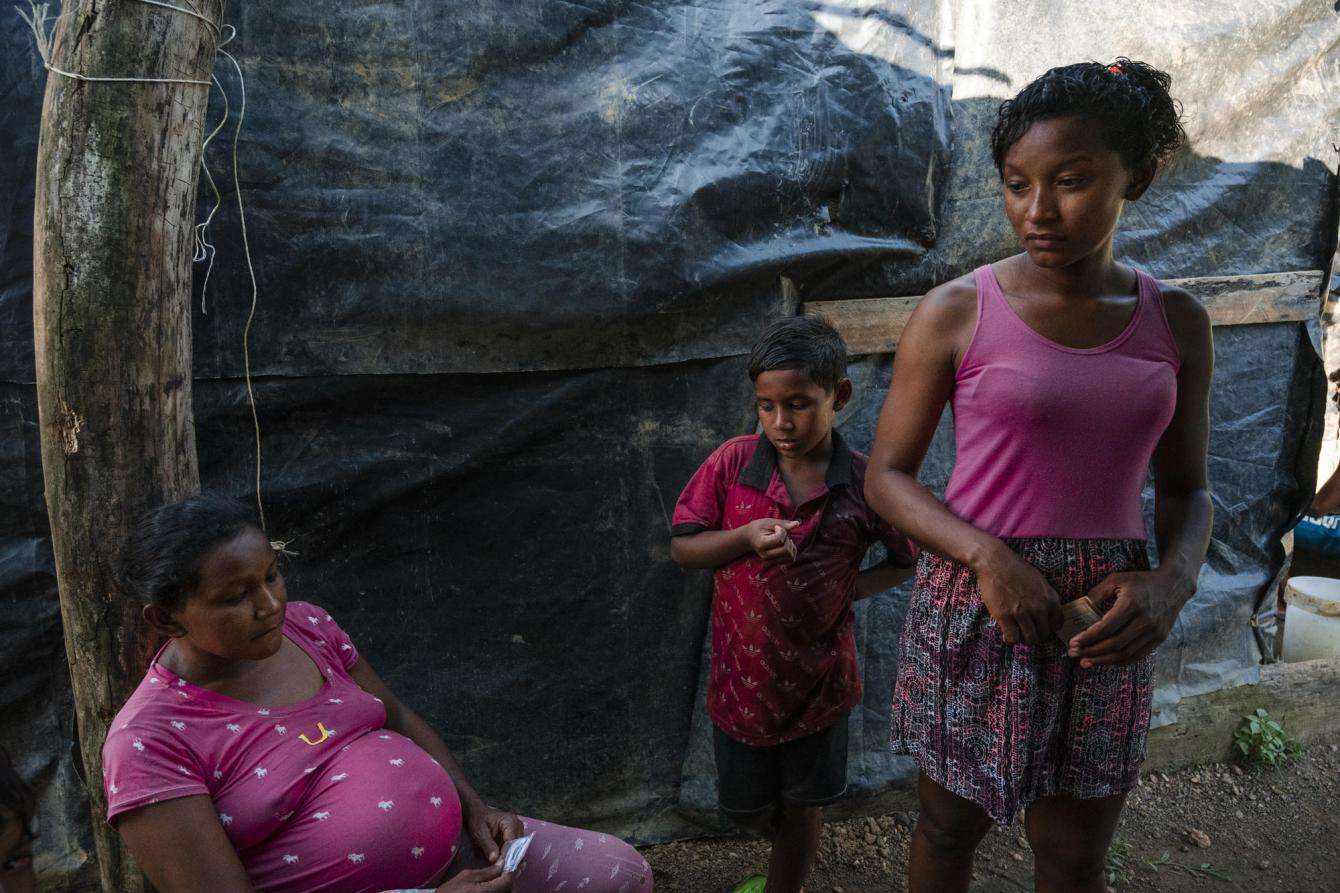
My name is Sulay Lozano and I’m 22 years old. My family originally comes from Ciudad Bolívar, but the city had become too expensive in the past years, and my parents could not find work there anymore. So, we left our home to go live inside the mine for a while. We then recently moved to Las Claritas, a town just outside of the mine, when my mother got pregnant.
Overall, I like living here. We feel safe and we are in a better situation than in Ciudad Bolívar. There, we didn’t have money but here we always can find gold, even if it is in small quantities. We’ll probably stay here for a while.
Every day, my stepfather, my cousins, and brothers go look for gold to help us all survive. And I stay home with my mom. I get up at 6:00 a.m., I prepare the breakfast, and then I wait for the rest of the day to pass by . . . We all live in a shared room made of plastic sheet for now, but we will build something of wood, when we have enough gold for it.
We pay everything in gold here. For instance, the mosquito net I use when I sleep in my hammock cost me 0.8 grams of gold. It was quite expensive, but I bought it because malaria is a plague in this area.
As soon as you leave your mosquito net, a mosquito comes and bites you. Everybody has had malaria around here. But I’m usually not too worried, even when one of us gets sick. I’ve had malaria 40 times and my little brother about 10 times. My mom, my daughter, and my nephew had it many times too. That’s something normal for us. We just try to prevent it when we can and to treat it when it hits.
I know how to identify the symptoms of malaria now and I usually go ask for a test as soon as I start feeling a bit bad. When we were still living inside the mine, I had to buy the treatment for malaria when I felt sick, there was no way to get it for free. A full round of treatment would cost me about 1.5 grams of gold back then. It was expensive, but it would have cost me even more to reach the clinic in town, where it was provided for free. I have known people who died of malaria, so I know how important the treatment is.
Today, I went to the Santo Domingo clinic to get free treatment for my little brother Edgar. He was diagnosed with malaria yesterday and felt too weak to come with me. Every time I go to the clinic, I try to get a consult. The fact that we live close to the ambulatory now and that we don’t have to pay for treatment there is helpful, because we couldn’t afford it.
Every day, I try to help my family as much as I can, with the little means I have. My mother is about to give birth, so she needs me to be there for her and for my relatives. Another reason why we moved out of the mines was for her delivery to be easier. From Las Claritas, we’ll just have to take a taxi for an hour or two to reach one of the state hospitals. It should go well . . . I just hope they’ll have the materials to take care of her. It’s not always the case . . .
When I think of her future baby, I also think of my own daughter. She’s three years old now. I hope she’ll be able to study one day. I hope I’ll be able to go back to school too. I stopped it in fifth grade, when I got pregnant. But studies are important if you want to work. And I’ll need to work if I ever want to afford my own home. That’s my only dream.
I hope I didn’t get malaria again.
Miguel Escalona, 19, Las Claritas
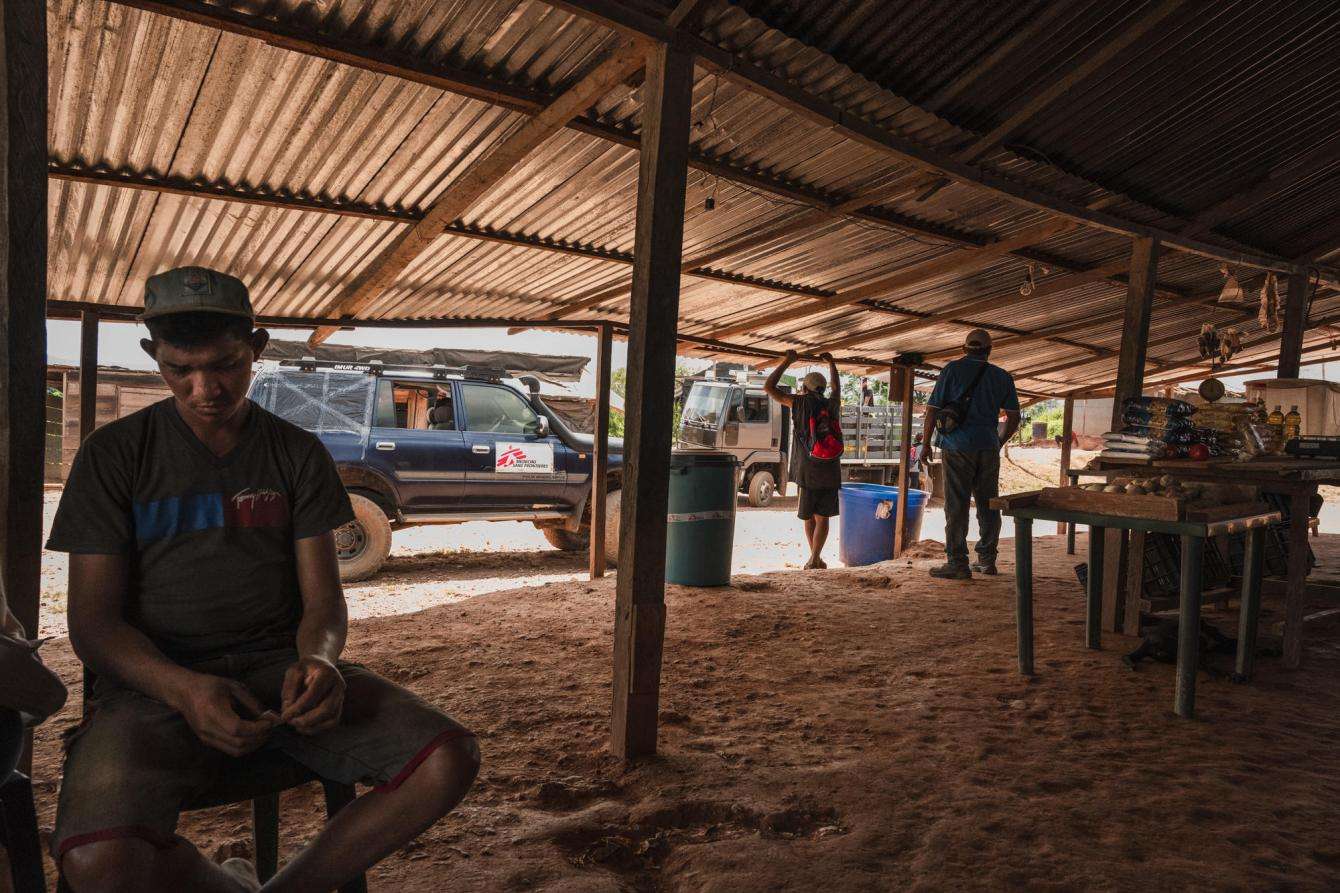
My name is Miguel Escalona and I’m 19 years old. I originally come from Ciudad Bolívar, but I now live in a mine called Piedra Dura (Hard Rock). It is the eighth time I’ve worked at the mine. I started when I was fifteen years old. My dad could not find work anymore, so I had to quit school to support him. I have thirteen brothers and sisters, so he needs help from his boys.
Since I started working in the mines, I’ve had malaria six times. The first time I got it, I didn’t know what the symptoms were. I started to learn about the symptoms when I got it multiple times. In January, I got it again and it hit me badly. It was the first time it hurt me so much. I had to go straight to the hospital, in Ciudad Bolívar.
Today, I went to this diagnostic point because my head and bones were hurting. I’m waiting for the results of my test now. I hope I didn’t get malaria again. But whatever the result, at least I won’t have to pay. My colleagues told me that I could get diagnosed and treated for free if I came here. In some of the mines, there aren’t any diagnostic points like this one. You must walk three or four hours to find one.
I think all the guys at the mine know that malaria is a big problem in this area. We buy our own mosquito nets to avoid being bitten. I bought mine in my city, even before coming, but it’s part of the risk when you come to work here.
Right now, I am very tired. I’ll probably rest for a day or two before going back to work. And when I find enough gold, I’ll try to take a break and to go back to my city for a while, to see my family. I miss them but I want to do everything I can to help them.
We need to make sure that people receive the right messages.
Josué Nonato, MSF Health Promoter
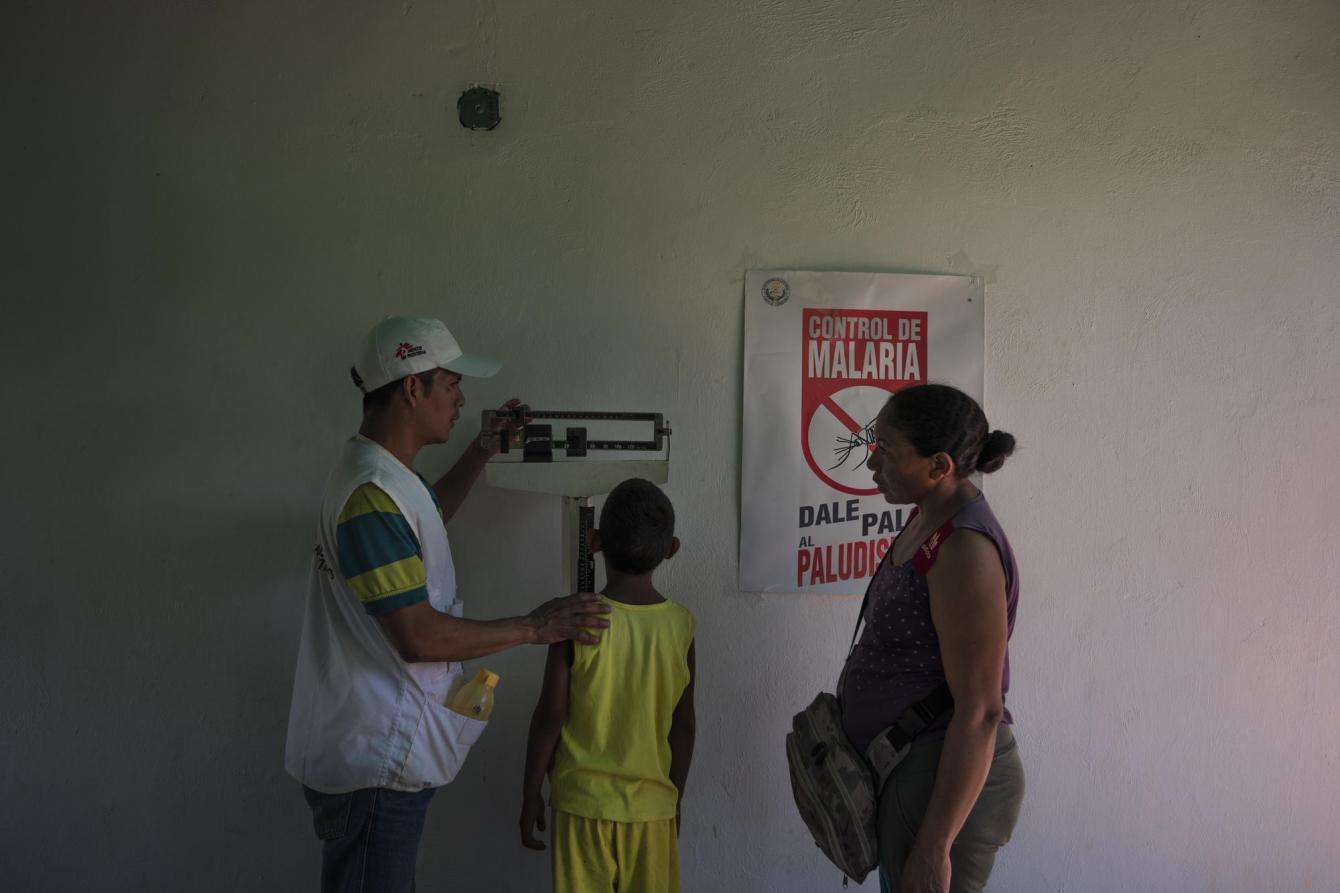
I am Josué Nonato and I work as a Health Promoter for Doctors Without Borders in Las Claritas. My work consists of giving educational sessions in the Santo Domingo ambulatory [clinic] as well as in the different diagnostic points, in the mines, and in neighboring indigenous communities. Along with my colleagues, we work principally on spreading the right messages about malaria in those places because it is a very big issue in this region of Venezuela.
When people come to the diagnostic points to get tested for malaria, the person in charge of the diagnostic doesn’t necessarily have the time to explain everything about the disease. That’s why our health promotion team is here. We talk to the patients and answer any doubts or questions they might have.
In this area, many people have already had malaria many times, so they tend to think they already know everything about it. But when we provide them with the correct information, they are sometimes shocked. It can be different from what they thought they knew about the disease because there is a lot of misinformation about it.
For instance, many people still believe that malaria is transmitted through water, food, or sexual intercourse, not through mosquito bites. Others also believe that antibiotics can prevent malaria. Even me, I learned a lot about it when I took on this job! The training I received when I started helps me today to better inform people. During our sessions, I challenge all these popular beliefs and clarify the symptoms of malaria, how to do the test, and what is the right duration of treatment.
Through my job, I also meet people who come here for the first time and have never heard of malaria. There’s a lot of movement in this area and that’s why it is important to keep on spreading the right messages in different places, both in the mines and in the community. We need to make sure that people receive the right messages. We also rely a lot on a network of volunteers who can reach out to even more people in the communities.
Overall, I think that health promotion activities are crucial in this region of Venezuela because if people do not get the right information, they’ll already show up sick at the diagnostic points. Health promotion gives the opportunity to people to be more in charge of their own health.
